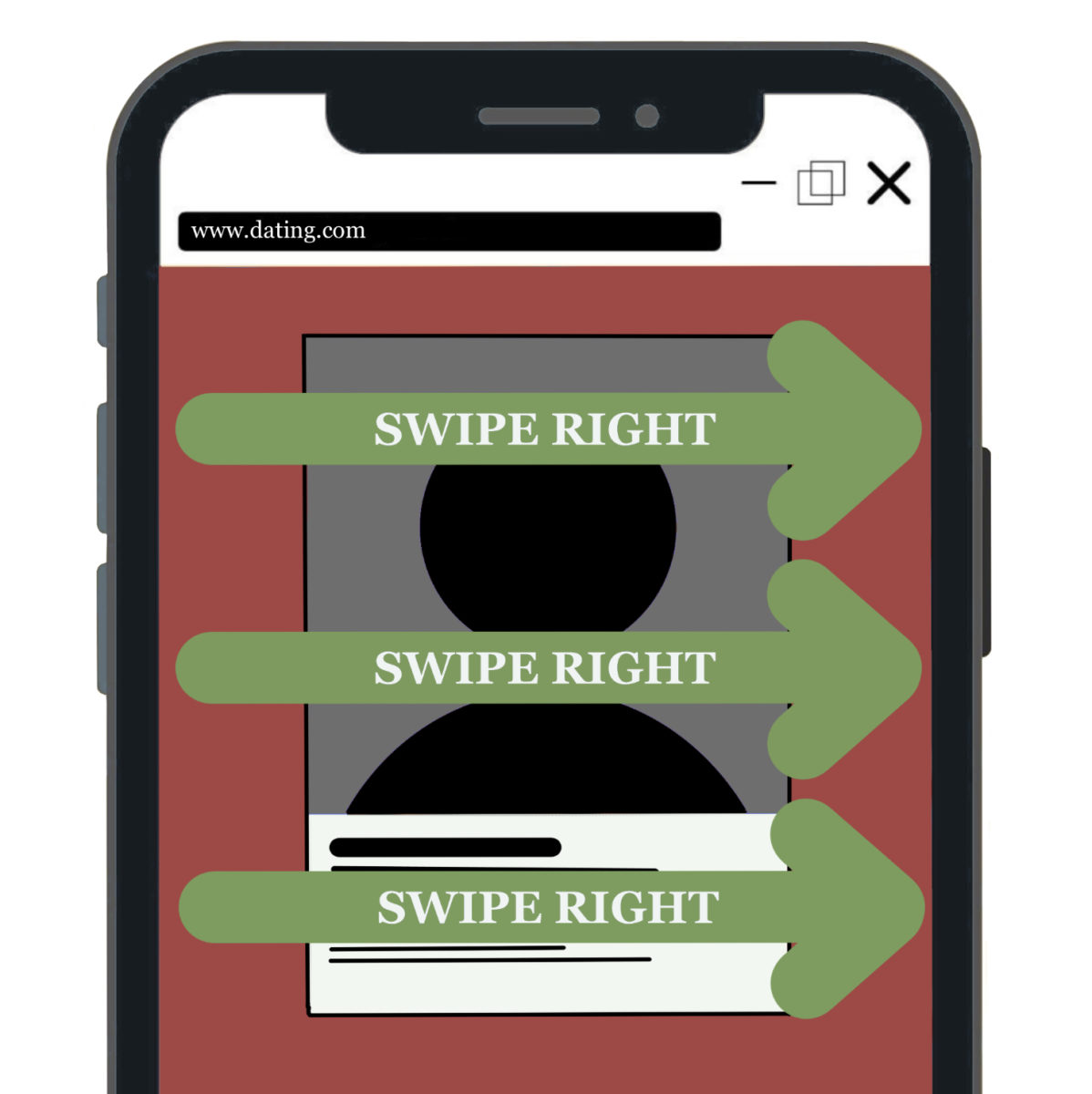Whether exploring future prospects for “the one” or simply playing the field with “one of many,” online dating apps are the go-to for a date, mate or hookup. The path from strangers to romantic partners is just a swipe, tap or card away in our fast-paced, technologically advanced existence. But dating apps are not simply about instant gratification; there’s also additional baggage to contend with. The gamification of coupling often brings about compulsive swiping and profile browsing, along with feelings of low self-esteem, all the while generating eye-watering revenue for dating app companies. Whether you experience triumph or torment, the online dating industry is the real winner.
The dating app industry reported about $4.9 billion in revenue in 2022. While the pandemic drove up the revenue, post-pandemic growth has slowed; still, the industry is projected to reach 10% annual growth through 2030. Dating apps attract users by offering a freemium model where services are free and limited, thus tempting them to purchase their premium and à la carte options for an enhanced experience and greater satisfaction. Virtual gifts, access to a dating coach, more transparency on profile views, unlimited swipes and advertising—everything is on the table for revenue generation. Pursuit of a potential liaison is just a tap or a swipe away.
There is a vast array of dating apps to choose from, providing users with a wide range of options regardless of what they fancy. Notable apps include Tinder, which holds the largest market share in the American online dating scene, offering mobility, proximity and speedy results with a gaming twist. Tinder was the most downloaded app of 2022. Badoo is the most downloaded dating app globally, with over 400 million users. Bumble empowers women in the dating process by allowing only them to send the first message to a match, whereas Hinge has special features for LGBTQIA+ singles. Grindr, BLK, Plenty of Fish, Coffee Meets Bagel and Feels are just a handful of names vying to play Cupid. As people of all ages dive into the online dating pool, companies are creating more filtered and imaginative premium subscriptions to lure them in.
Then, there’s the matter of the algorithm that is at the heart of every online matchmaking process. The success of every dating app is heavily dictated by the algorithm that is used and tweaked to match two strangers. The set of rules in the algorithm bases the match on factors that are defined by the app’s creator. For example, if a dating app prioritizes food habits, the emphasis would be on matching people with similar food tastes. Information can be gleaned from different factors such as survey data, user profiles, demographics, location, social media preferences, pictures, online behavior, hobbies and more—anything the algorithm deems important. While human emotional responses and behaviors are highly complicated, the algorithms simplify and pair people using a weeder process, which might be a great starting point for some. Other apps utilize clever marketing gimmicks along with a gamified approach to dating in which the user swipes to like or dislike a profile. When competing for potential dates and maximum swipes, it is almost impossible not to get swept in. Little else is required to induce users into transitioning to paying subscribers.
Besides the monetary and romantic aspects of dating apps, there is a mental health cost that is often overlooked. Excessive swiping can easily become addicting, resulting in a loss of productivity and harmful lifestyle changes. Body image gets an intense focus due to all the photos and videos uploaded to dating profiles, which can result in eating disorders and detrimental weight control methods. Online rejection or fewer likes can lead to unhealthy coping mechanisms, anxiety, low self-esteem or depression. Sometimes, the vast pool of potential dates can be overwhelming and result in confusion or burnout. While the latest apps have worked to reduce instances of catfishing, inappropriate photos, stalking and unwanted contacts, they still occur and put people in vulnerable situations. Peer pressure and the desire to adhere to societal expectations also lead to immoderate dating app usage. Mindful usage of dating apps is a common sense solution to the various risks involved. After all, most people are seeking love or companionship, not limerence, poor mental well-being or debt.
Dating apps generate more revenue the longer a user stays on them. They seduce with a swipe and incentivize premium subscriptions. Are these efficient and accessible dating apps the new-age answer to matchmaking grandmas, nosy friends and relatives and ambiguous encounters? Or are they just another social media nuisance that we could live without? Whether they experience success or disappointment, singles from various demographics are signing up for Cupid’s games despite the costs. With investments and revenue pouring in, dating app companies are here to stay and singles are ready to play and pay.




